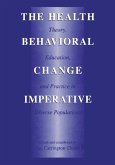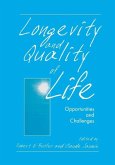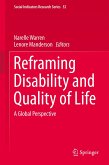This volume creates a multi-disciplinary dialogue about clinician-patient communication. It offers a description of the relevance of culture as a contextual effect that impacts the clinician-patient relationship. Some topics addressed include: oncology care, quality of life issues, supportive survivorship, etc. It is for physicians, nurses, hospice and palliative care professionals and public health professionals.
Dieser Download kann aus rechtlichen Gründen nur mit Rechnungsadresse in A, B, BG, CY, CZ, D, DK, EW, E, FIN, F, GR, HR, H, IRL, I, LT, L, LR, M, NL, PL, P, R, S, SLO, SK ausgeliefert werden.
"This important scholarly volume provides a powerful description of the relevance of culture as a critical context effect that dramatically influences provider-consumer communication and health outcomes in the Western context of cancer care. Culture is illustrated in the book's chapters as a pervasive variable, encompassing linguistic, national, ethnic, age, gender, socio-economic, and even professional beliefs, framing health care providers' and consumers' expectations and responses to cancer care. To be effective, communication in cancer care must be responsive to the cultural beliefs, values, and attitudes that participants bring to the health care setting. Culturally sensitive communication in cancer care can take advantage of distinct context effects for therapeutic benefit. This book provides the reader with a vivid sense of the powerful cultural issues that face provider-consumer communication in oncology, and also suggests strategies for adapting cancer communication to meet unique cultural demands." (Gary L. Kreps, Ph.D., Chief, Health Communication and Informatics Research Branch, National Cancer Institute) "In order to have meaningful communication between clinicians and patients, it is essential there is mutual understanding of each other's cultures. There is diversity across ethnic groups and equally important within ethnic groups. This book reinforces the importance of culture as a context for cancer care and introduces the reader to strategies for understanding how we all represent our own culture and how to communicate with each other to enhance our life experiences. The book needs to become required reading for clinicians from all disciplines." (Ruth McCorkle, Ph.D., Director, Center for Excellence in Chronic Illness Care, Yale University School of Nursing)









